Search Posts
Recent Posts
- Vinny Paz to be inducted TODAY into the International Boxing Hall of Fame – CES Boxing June 7, 2025
- In the News… quick recap of the week’s news (6.7.25) June 7, 2025
- Burn with Kearns: Strong without the spend: How scraps became strength tools – Kevin Kearns June 7, 2025
- Rhode Island Weather for June 7, 2025 – Jack Donnelly June 7, 2025
- How to advocate for threatened properties: The Heritage Alliance of Pawtucket June 7, 2025
Categories
Subscribe!
Thanks for subscribing! Please check your email for further instructions.
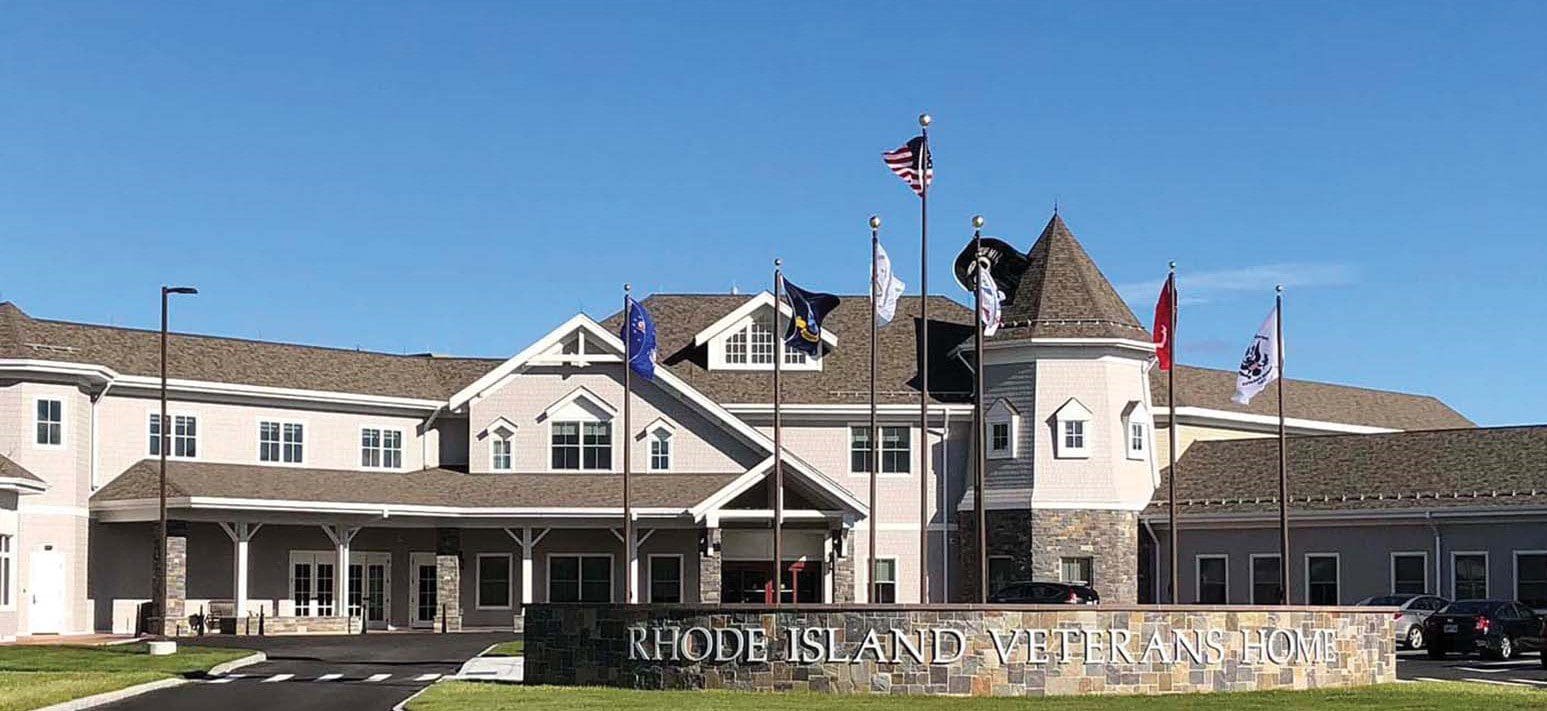
Deficiency-free surveys “thing of the past” says Vets Home director, veterans react. John A. Cianci
by John A. Cianci, veterans writer
Concerns of veterans receives response from Yarn
A survey of the RI Veterans Home is conducted annually by the Veterans Administration. The information contained in the survey is public and veterans can review its findings. The findings in the latest survey were troublesome and resulted in one veterans group voicing its concerns, in writing, to a wider group of leaders, decision makers, and those involved in Rhode Island veterans’ issues.
(In full disclosure, this writer, John A. Cianci, is the Commander/Veteran Service Officer of the Italian American War Veteran of US, and I’ve been involved in advocating on behalf of the veterans at the Rhode Island Veterans Home for many years).
Cianci’s letter to the group:
“Recently, Italian-American War Veterans (ITAMS) Leadership, John Cianci sent an email to the Governor’s Office, members of the General Assembly and media outlet on his findings on the most recent VA Survey of our RI Veterans Home.
As you know, I meet monthly with the UVC to provide updates and address any concerns. Unfortunately, there are some organizations that never attend. Prior to sending to social media, at no time has ITAMS brought any concerns to the RI Office of Veterans Services; to include, offering time to respond. I believe in addressing concerns and solving them at the lowest level possible. Of note, none of the matters John Cianci raises come up during the monthly meetings. But, are resolved after social media posts have been made by John Cianci.”
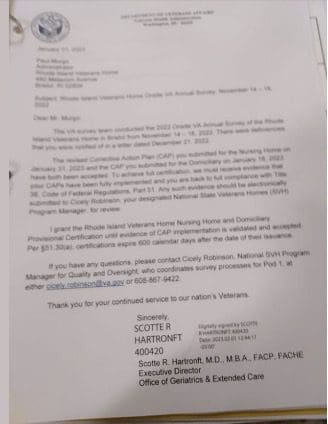
RINEWSTODAY obtained a copy of an email sent by Kasim Yarn, Director of State of Rhode Island Department of Veterans Services, on March 11, 2023 to the RI Senate President and other elected officials seemingly in response to the letter sent by the ITAM veterans group, he wrote about some of the non-compliant fire, safety, and health concerns identified during the 4-day on-site Veterans Administration State Home Annual Survey conducted in November 2022.
In Yarn’s email, he says, “Deficiency free surveys are a thing of the past, and this is the “new normal.”
The deficiencies and concerns resulted in a Provisional Certificate due to non-compliance issues. Some of the non-compliance were:
(No treatment plan for patient medical issue).
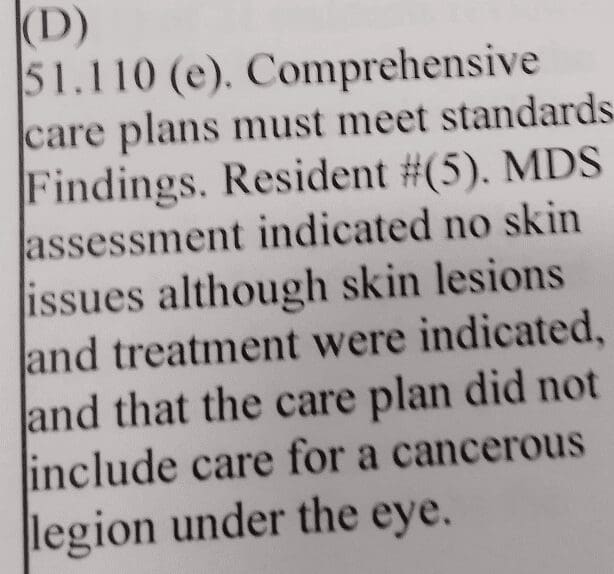
“Resident MDS assessment indicated no skins issues although skin lesions and treatment were indicated, and the care plan did not include care for a cancerous legion under the eye.
–
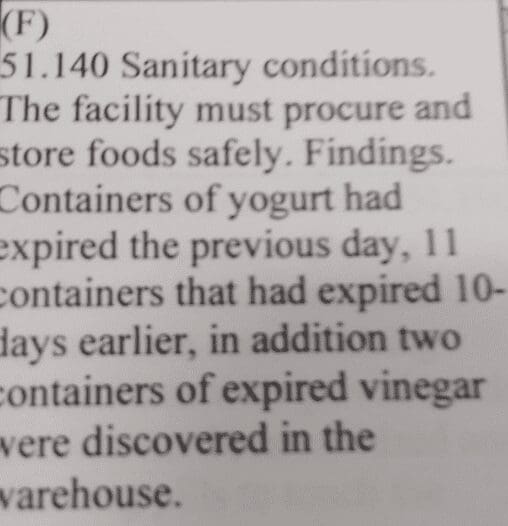
Complaints made by residents on activities programs.
Sanitary conditions. Oven a dozen expired container, 11 were 10 days expired.
The facility must procure and store food safely. Findings: Containers of yogurt had expired the previous day , 11 containers that had expired days 10 days-earlier, and 2 containers of expired vinegar were in the warehouse.
Infectious Control: Students and staff do not properly sanitize hands while assisting residents during meal time.
_
One of several veterans who received Yarn’s email wrote back to other veterans. That veteran wrote, “The new normal? What a horrible thing to say, in my opinion. I know this is not an easy job managing every aspect of the home, but this is your job. Unfortunately, John has learned the only way to get immediate attention (on corrections needing to be made) is through social media, as the traditional chain of command has proven useless.”
Another comment: “Maybe Yarn believes surveys might be a thing of the past, however, as a licensed food service manager, the training paid for by the VA for me, ) having 10-day expired food items at a long term skilled nursing on the day of a scheduled inspection should NEVER occur, Moreover, on any occasion, especially in a long term nursing facility with residents of weaken immunity.”
Another: “Unfortunately John has learned the only way to get immediate attention is through social media as the traditional chain of command has proven useless”.
Some of the complaints the Italian American War Veterans of US have brought attention to our state leaders:
- State order to repay 56 veterans living at the home who have been overcharged an estimated $7 million dollars;
https://www.wpri.com/target-12/a-little-too-late-ri-veterans-home-families-repaid-millions-after-improper-billing/ for details.
2. ITAM brings cable and internet charges of the Veterans Home residents to public attention, resulting in a response by Yarn, and later an announcement that veterans living at the home soon will receive FREE basic cable and internet. (https://rinewstoday.com/ri-veterans-did-you-know-veterans-home-charges-veterans-court-16-2-23-john-a-cianci/) – after many months of advocacy on this issue, WPRO’s Tara Granahan exposed the cost problems. Director Yarn went on her show, at her request, to respond to them, and then announced that cable would now be provided for free after a few months of working on the issue. It is unclear if the charges were dropped, or if reimbursements of any kind will be made.
One of the issues in the survey noted expired food items. Yarn downplays this finding, but having a 10 day expired food at a long term skilled nursing facility, with multiple people serving and taking food should never be taken likely.
In Yarn’s correspondence, on this issue:
“Despite the size of the facility there were only two items found to be expired in the entire building. One was a gallon of white vinegar in the back of the warehouse which is used only for cleaning equipment. The other item was flats of single serve yogurts in the central storage refrigerator, apparently set aside for disposal, but it evidently had been overlooked. Neither product had been distributed to a neighborhood kitchen that serves residents. The yogurt would have been disposed of the following morning when the regularly scheduled expiration date survey process would have been performed (that’s when we dispose of anything that is or is about to expire)”
However, the inspectors identified 11 containers, expired 10 days earlier.
Yarn wrote in his email:
“The yogurt would have been disposed of the following morning when the regularly scheduled expiration date survey process would have been performed (that’s when we dispose of anything that is or is about to expire).”
That would be at least 9 other days we know of where no one at the Veterans Home had identified 11 containers that were expired to properly dispose the items. Notably, the inspectors were at the facility for 4 days and staff were well aware of the scheduled inspection. Yet, expired containers were left in refrigeration.
More Background
The Rhode Island Veterans Home is state operated. The home does not accept Medicare, therefore it does not have CMS inspections.
Yarn’s own admission in his email, notes that ITAM (and my) advocacy efforts are what has forced action by Yarn and the Veterans office.
Yarn wrote in the email regarding the issue of the Home getting Provisional certification, and that it would take months to receive full certification, that:
“Of note, none of the matters John Cianci raises come up during the monthly meetings. But, [they] are resolved after social media posts have been made by John Cianci.’
The content of Yarn’s email also says:
“The Vets Home did not agree with many, or even most, of the deficiencies that were cited in our survey last year. The Vets Home could have engaged in the laborious legal process to dispute those deficiencies; but instead, the Team decided to just move ahead and offer the most reasonable corrective actions we could formulate. The VA has accepted [our] plan of correction. The corrections have been made and the monitoring of compliance with the corrections is ongoing and scheduled to be complete in mid-April.”
ITAM’s response:
“When a Veterans administration accredited organization like the Italian American War Veterans of US identifies concerns for safety and injustices against veterans the organization will take action. A state director like Yarn, is not in our chain of command and conduct and actions by our organization can be reviewed by the VA Office of General Counsel, “ said ITAM state commander, John A. Cianci.
Upcoming Meeting
Cianci has been contacted by several members of the House of Representatives Veterans Advisory Committee who have suggested he bring his concerns, with backup documents, to their scheduled meeting on Monday, March 13th, at 10am:
This is a developing story…and an update following the Advisory Committee will follow.
–
REFERENCES AND NOTES
Original message from Kasim Yarn to Veterans Group (email addresses omitted)
From: “Yarn, Kasim (VETS)”
Date: 3/11/23 07:07 (GMT-05:00)
To: John P Gallo Sr
Cc: Tiger Patrick SVC VFWRI, Rachael Garcia, Betty Leach, Connelly, Meghan, Alan C. Conca (DAV SVC), Bob Schierschmidt, Dan Green (AMVETS Sr. Vice Commander, Dave Malone, David Williams AL Dept. Commander, Ernest S. Boisvert, Evangelista, Dan, GinaMarie Doherty, Ginny Hanson, Gretchen Vierling-Cutlip, Ira Jay Fleisher, James W. Burrows, Lori Ashness, Michael Penn, N. Tack, Richard Enos, Richard St. Louis, Commander KWVA, Salvatore J. Capirchio, Sanford Gorodetsky, Sean Regan Commander AMVETS, William Siano
Subject: FW: RI Veteran Home Fails VA State Home Annual Certification-Placed on Provisional Status from federal State Veterans Home Oversight
Dear Mr. President,
Recently, Italian-American War Veterans (ITAMS) Leadership, John Cianci, sent an email to the Governor’s Office, members of the General Assembly and media outlet on his findings on the most recent VA Survey of our RI Veterans Home.
As you know, I meet monthly with the UVC to provide updates and address any concerns. Unfortunately, there are some organizations that never attend. Prior to sending to social media, at no time has ITAMS brought any concerns to the RI Office of Veterans Services; to include, offering time to respond. I believe in addressing concerns and solving them at the lowest level possible. Of note, none of the matters John Cianci raises come up during the monthly meetings. But, are resolved after social media posts have been made by John Cianci.
Our monthly meeting continues to be a great forum to discuss our priorities to help Veterans and military families.
I look forward to meeting with the UVC at our next meeting via zoom.
Regarding John Cianci’s email to our elected officials:
The Vets Home did not fail the Survey.
The Vets Home did not agree with many or even most of the deficiencies that were cited in our survey last year. The Vets Home could have engaged in the laborious legal process to dispute those deficiencies; but instead, the Team decided to just move ahead and offer the most reasonable corrective actions we could formulate. The VA has accepted, or plan of correction. The corrections have been made and the monitoring of compliance with the corrections is ongoing and scheduled to be complete in mid-April.
During our annual conference in D.C., I raised these concerns with the Under Secretary that oversees ALL state-ran Veterans Home. All of my state director, colleagues agreed that there are significant concerns about the survey process this and last year, which have reportedly resulted in excessive and sometimes questionable deficiencies. Our local Federal VA partners have been 100% supportive.
In response to the comments made by Mr. Cianci – [see] below:
- Provisional certification is a normal part of the survey process each year. The VA offers provisional certification until the corrective action plan is complete. Every Veterans Home that receives even a single deficiency is placed under provisional certification until it is cleared. It is reported that the average number of deficiencies for all nursing homes in RI is now around 12 per survey, with upwards of 18 not uncommon. Deficiency free surveys are a thing of the past, and this is the “new normal”.
- Infection control issues. During the survey we hosted nursing students who are in training, which is an integral part of our attempt to recruit new employees to care for our Veterans. A surveyor observed students and some of our staff serving lunch to our residents (much in the way a waitperson would serve someone in a restaurant) except that those students and staff were wearing gloves. The surveyor felt that they should have sanitized their hands in-between serving each resident if they had to touch another surface (like helping a resident adjust their chair). The same deficiency was repeated in the survey document several times, like when kitchen staff were putting away clean dishes while wearing gloves but may have touched the cabinet door or the countertop as they were stacking the dishes. However, it’s all part of the same observation on the same day. We agreed to provide staff with competency-based training regarding the proper techniques during food service, handling dishes, medications, etc.
- Fire door inspections were completed on-schedule and as required, and they are documented in our maintenance task scheduling system. However, the surveyor felt that there should be a more detailed worksheet that itemized each of the 12+ items of inspection prescribed for each door. As a result we created a worksheet with each of the inspection items listed individually to use in future inspections.
- The sprinkler inspection that was cited as not performed was actually “late”. This is a 5-year pressure valve and dry system inspection. There was some discussion/confusion between the State DCAMM and the surveyor about when that 5-year clock started. Our DCAMM team thought that it started when the building was certified for occupancy, November of 2017 and at the time of the survey we were just then reaching that anniversary. The surveyor contended that the 5-year clock started on the date of manufacture of the valves, which was over a year earlier and during construction. The contract for this inspection was initiated in late summer but then experienced some delays in approval and scheduling. However, we were discussing the timing of the inspections with the sprinkler company since it is risky to perform them during the winter months. This inspection takes weeks of labor to complete and requires several different procedures and disciplines. ½ of this project was completed just after the survey, and the other ½ is commencing this month.
- Expired food. This is not an uncommon finding for nursing homes, and there are processes to prevent these items from reaching the residents. RIVH has 7 kitchens, 18 medication rooms, and a warehouse all of which store food and products that expire. Despite the size of the facility there were only two items foundto be expired in the entire building. One was A gallon of white vinegarin the back of the warehouse which is used only for cleaning equipment. The other itemwas flats of single serve yogurts in the central storage refrigerator, apparently set aside for disposal but it evidently had been overlooked. Neither product had been distributed to a neighborhood kitchen that serves residents. The yogurt would have been disposed of the following morning when the regularly scheduled expiration date survey process would have been performed (that’s when we dispose of anything that is or is about to expire).
- Resident MDS issue-Cancer. There is a resident who has had a cancerous legion below his eye for many years and has treated/managed the condition long before admitting to the RIVH. He has opted not to treat the cancer or the legion at this point in his life. While the diagnosis was present in the MDS/care plan there is no specific treatment listed because the resident does not want it treated. The surveyor had a difficult time accepting this as a resident right and was mostly concerned about the appearance of the legion. The surveyor felt it should be covered by a bandage or sunglasses. The resident and the treatment team do not agree. However, we agreed to audit anyone else with this condition to be sure the plan (or deliberate lack of treatment in this case) was clearly explained.
- A Resident fell. This is not related to the survey but is a personal experience between Mr. Cianci and a resident he has befriended. This resident is highly functional, independent and ambulatory. He fell on the evening of the 3rd (Friday) but had little pain and no indications of injury upon exam. The following evening, the resident reported some soreness around his rib. The nurse offered to send him out for an x-ray but he opted to wait until Monday. In the meantime, the doctor was again notified/consulted and ordered the x-ray and medicinal treatment for his discomfort. The in-house x-ray revealed a single fractured rib that is expected to heal without intervention.
Mr. President, we must continue to work together and look forward to our next opportunity.
Sincerely,
Kasim
Director, RI Office of Veterans Services – 560 Jefferson Blvd, Warwick, RI 02886 – Phone: 401.921.0411
email: kasim.yarn@vets.ri.gov – twitter: @RIVetsDirector
___
Food Safety in Long Term Care Facilities
Expiry dates should be checked daily. Any food found to be out-of-date mustbe discarded.
Food safety practices are vital in long term care facilities, as seniors are at an increased risk for hospitalization and death from foodborne illnesses. In fact, seniors living in nursing homes face 10 times the risk of dying from bacterial gastroenteritis than people in the community.2
Residents of LTC facilities tend to spend much of their time in confined spaces, with visitors and staff coming and going. These conditions allow for the easy transmission of pathogens.
Given the serious consequences for seniors of acquiring a foodborne illness, it’s critical that long term care facilities follow good food safety practices. Let’s look at what LTC facilities can do to ensure resident safety.
Background
- Dietary aides deliver food trays to common dining areas and to individual patient rooms in VCH health care facilities.
- Food tray delivery and pick up generally involves no contact with the patient or touching of their immediate surroundings.
- Hand hygiene practice in accordance with the Public Health Agency of Canada’s “4 moments for hand hygiene” is indicated for all VCH employees and contracted service providers as per the VCH Hand Hygiene policy.
- Inappropriate glove use can be a barrier to good hand hygiene practice and increase the risk of environmental cross contamination.
1. Hand Hygiene
Alcohol-based hand rub is the preferred method for hand hygiene in health care settings. Soap and water is required if hands are visibly soiled and for Contact Plus Precautions. Staff responsible for delivery and pick up of food trays must perform hand hygiene:
When entering and leaving a clinical area (unit, department, neighborhood). ØAnytime hands come into direct contact with a patient or their immediate
surroundings (e.g., door handles, bed rail, privacy curtain, light switch).
- Before and after using gloves.
- After removing a tray from a room with a Contact Precautions or Contact Plus
Precautions sign on the door.
- Any time hands become visibly soiled.
- On a regular basis when delivering and picking up trays as a matter of good hygiene.
Infection Prevention and Control
When tray delivery and pick up is complete.
2. Gloves
- Gloves should not be worn when delivering food trays.
- Gloves are not required when picking up food trays.
- If gloves are worn for tray pick up, they must be removed to perform hand hygiene as indicated above. Gloves do not replace hand hygiene.
_
(14) Annually providing written certification to a SVH for a full certification if the survey had no deficiencies or a provisional certification when the CAP is accepted. This is followed by a full certification when the SVH has completed the submitted CAP with evidence to demonstrate that they are fully compliant with applicable Federal regulations.
–
February 18, 2021 – VHA DIRECTIVE 1145.01 3. DEFINITIONS
VA Medical Facility Director. The Director, VA medical facility of jurisdiction, provides oversight for the VA medical facility SVH program and is responsible for:
(1) Ensuring overall VA medical facility compliance with this directive and that appropriate corrective action is taken if non-compliance has been identified.
(2) Appointing a VA employee to serve as the SVH VA medical facility representative to perform the duties listed under SVH VA medical facility representative (see paragraph 5.i.).
(3) Appointing a VA employee to serve as the SVH VA fiscal representative to conduct the SVH survey related to assigned fiscal standards and accounting principles and ensuring the appointed VA employee physically attends the survey with the VA Survey Team on day one of the survey; remains on site during the survey and performs all associated steps to complete the process (see paragraph 5.j.).
(4) Notifying GEC and the SVH liaison in writing when there is a change in either the SVH VA medical facility representative or the SVH VA fiscal representative.
(5) Ensuring annual TMS competency training is completed by the SVH VA medical facility representative and SVH VA fiscal representative before the first survey of the calendar year and validating completion with course certificate (see paragraph 12).
(6) Meeting with the SVH VA medical facility representative and SVH VA fiscal representative, as necessary, to ensure awareness of any issues at the SVH.
Annual Survey. An Annual Survey is an unannounced survey performed yearly to determine a SVH’s compliance with VA standards to achieve certification in order for the SVH to receive continued per diem payments.
Corrective Action Plan. A CAP clearly addresses a cited deficiency. It states specific interventions to correct the non-compliance(s) with target dates for remediation; identifies trends and patterns; considers core causes; and includes a plan to monitor effectiveness over time. A CAP is required for any standard rated as “Not Met.”
Per Diem. Per diem is the daily rate of reimbursement for care that SVH provide to eligible Veterans, established by VA for each SVH program of care.
This is a developing story…and an update following the Advisory Committee will follow.
___
To read all columns in this series go to: https://rinewstoday.com/john-a-cianci/
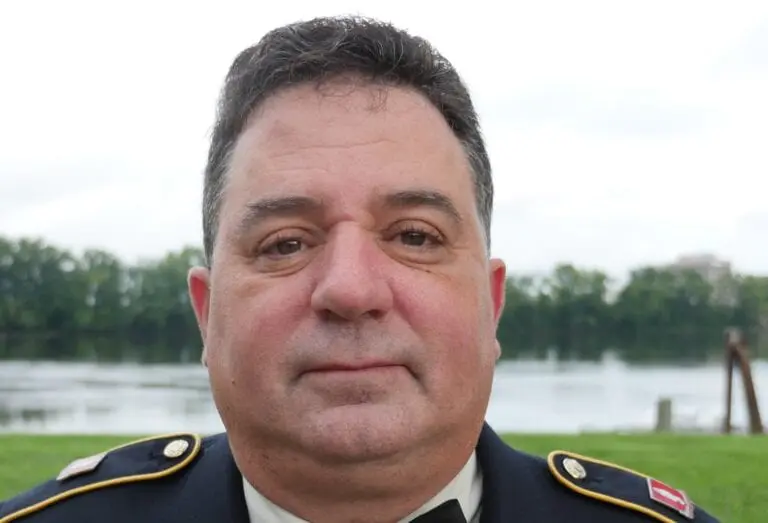
John A. Cianci is a Veteran Service Officer. Retired, U.S. Army MSgt., Persian Gulf War and Iraq War combat theater.
Cianci, a combat disabled Veteran, served in Desert Shield/Storm and Operation Iraqi Freedom. His awards include Bronze Star, Combat Action Badge, Good Conduct, and others.
Cianci belongs to numerous veterans organizations – Italian American War Veterans, American Legion, Veterans of Foreign War, United Veterans Council of Rhode Island, and many more organizations. He is an active volunteer assisting veterans to navigate federal and state benefits they have earned. He is Department of Rhode Island Department Commander Italian American War Veterans and Veteran Service Officer.
He is a graduate of Roger Williams University (BS Finance), UCONN business school* (Entrepreneur Bootcamp for Veterans), Solar Energy International Residential, Commercial and Battery Based Photovoltaic Systems certificate programs, numerous certificates from the Department of Defense renewable energy programs, including graduate of the Solar Ready Vets Program.
